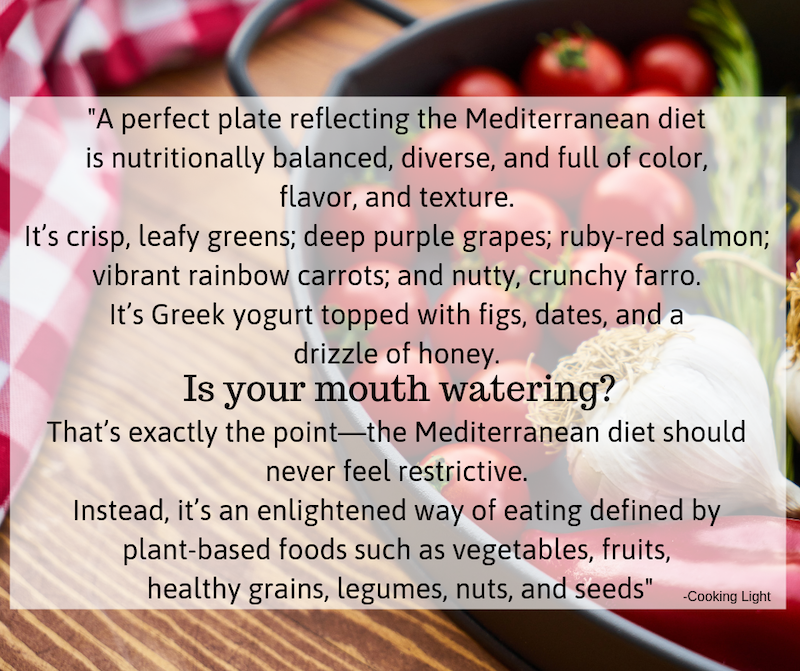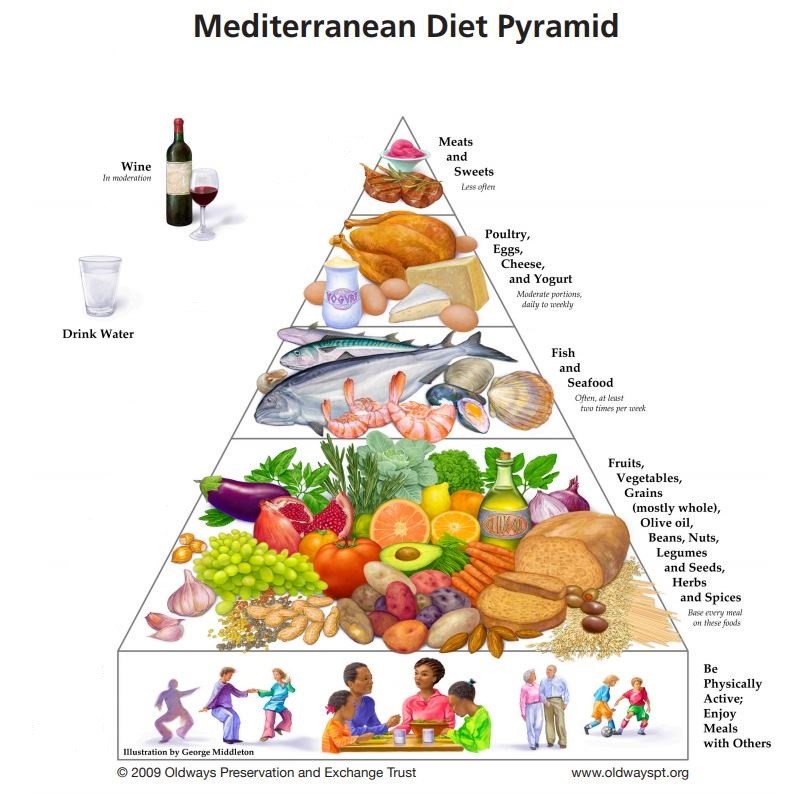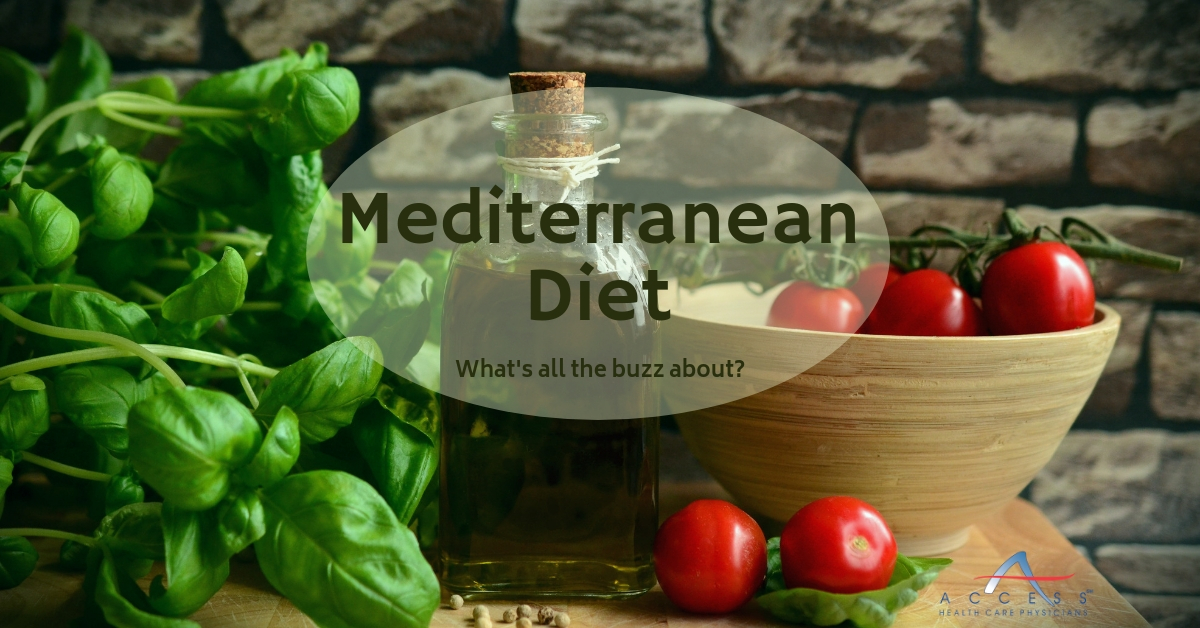Given the award as the Best Diet Overall by US News & World Report in 2019 and recommended by the Mayo Clinic, Oldways in partnership with the Harvard School of Public Health and WHO, the Mediterranean Diet has received a lot of buzz recently. It has been touted as a way to make your heart healthy, help prevent cancer and promote healthy weight loss and weight management. On top of all of the benefits, it is also rated as easiest to follow!
Sounds pretty great, right? Let’s break down the basics of this diet.
The first notable fact is that this is not a structured diet plan, rather an eating pattern based on the eating habits of those living in countries surrounding the Mediterranean Sea including Greece, Spain & Italy. It is a plant-based diet full of diverse, colorful and delicious fruits, vegetables, whole grains, nuts, legumes, fish and flavorful herbs.


Let’s break down a few good choices for each of the components of this diet.
- Vegetables – Choose a variety of colors and textures and include them with every meal. They can be enjoyed raw, steamed, roasted, grilled, sautéed or even pickled. Try to think of a veggie for every color of the rainbow.
- Fruits – Try to enjoy fruits to curb a sweet craving. Fruits in the Mediterranean diet include ones you may not think of instinctively such as; olives, grapes, figs, and avocados. Try to eat locally grown and in-season fruits and veggies.
- Healthy Grains – Common whole grains include brown rice, oats, quinoa, farro and more. These can be enjoyed any time of the day and include fiber, antioxidants and even anti-inflammatory properties.
- Proteins – The best choices include fish and shellfish rich in omega-3 fatty acids such as; salmon, mackerel, anchovies, and oysters. Some poultry and eggs are welcome but don’t forget about plant-based proteins including beans, nuts, seeds, and legumes.
- Healthy Fats – Speaking of omega-3 fatty acids, adding healthy fats like olive oil can be achieved by using it in cooking, making sauces, and vinaigrettes. The American Heart Association also recommends trying canola, peanut or safflower oil as well.

This food pyramid above was created by Oldways in partnership with the Harvard School of Public Health and the World Health Organization and makes a nice visual to help understand the Mediterranean Diet.
As you can see, unlike a traditional structured diet plan, the Mediterranean Diet does not focus on specific restrictions such as calories, fat or sodium intake. Instead, it is all about the choices of the foods you are eating.
In addition to the food guide, the Mediterranean diet encourages eating your meals with friends and family to talk, laugh and gain the benefits of enjoying life with loved ones. Round off this diet with physical activity and you are on the road to a healthier, happier you!
As always, it is wise to discuss diet changes with your doctor, as everyone’s nutritional needs vary. For most people, increasing your intake of healthy foods and reducing refined sugars, trans fats and processed foods is great for your overall health – and the Mediterranean diet is a great way to start!
For more informative nutrition content and fun facts, make sure to follow us on Facebook & Instagram.
Written By: S. Campbell for Access Health Care Physicians, LLC.


